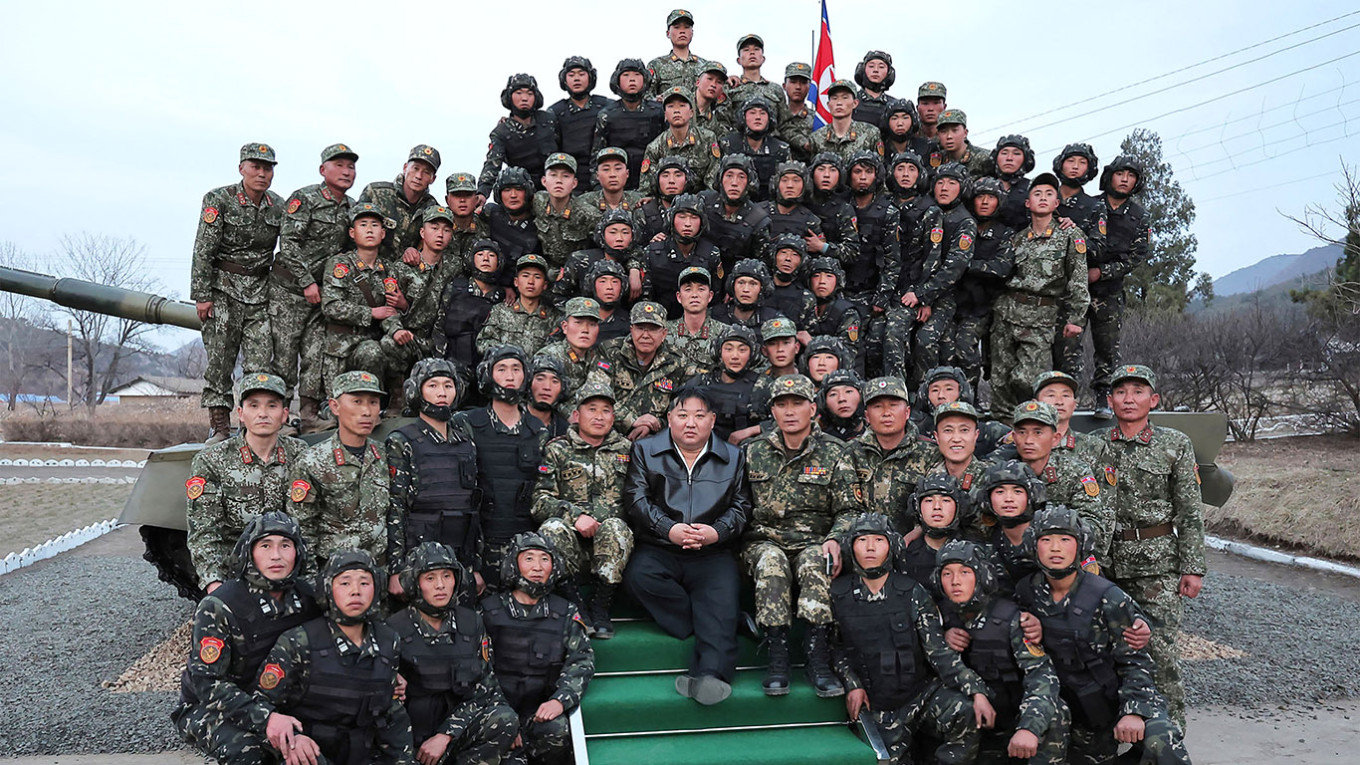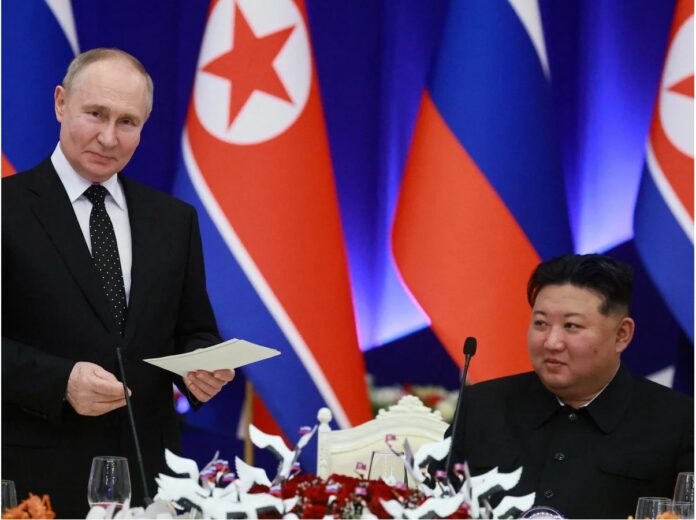In a recent development in the Russia-Ukraine conflict, North Korean troops reportedly joined Russian forces in active combat against Ukrainian soldiers in Russia’s southwestern Kursk region. According to Ukrainian officials, this is the first instance of North Korean soldiers engaging directly with Ukrainian forces. On Monday, Andriy Kovalenko, head of Ukraine’s Centre for Countering Disinformation, confirmed on Telegram that North Korean military personnel had “come under fire” in the Kursk region. Later that day, Ukrainian President Volodymyr Zelensky, addressing the nation, reported that approximately 11,000 North Korean troops had been deployed in the region to support Russian efforts to oust the Ukrainian military, which has been holding a position there since a surprise cross-border operation in August.
Zelensky voiced concerns about the expanding North Korean presence, stating that Ukraine’s international allies were not adequately responding to this shift. In his nightly address, he underscored the increasing military backing Russia is receiving, which, he implied, is raising the stakes in the conflict. The Financial Times corroborated the news of clashes, citing a senior Ukrainian intelligence official, though no additional details were provided.
In Seoul, South Korean Defence Ministry spokesperson Jeon Ha Kyou confirmed that around 10,000 North Korean troops are stationed in Russia, with many positioned in frontline areas, including the Kursk region. However, he refrained from confirming whether these troops were already in combat. This North Korean involvement reflects a shift in the dynamics of the conflict, marking North Korea’s most overt support for Russia since the start of the war.
As these reports emerged, Russian President Vladimir Putin held a spontaneous meeting at the Kremlin with North Korean Foreign Minister Choe Son Hui. During their discussion, Choe delivered a message from North Korean leader Kim Jong Un, conveying “sincere, warm, comradely greetings.” This meeting is viewed as a diplomatic move to bolster the alliance between Moscow and Pyongyang.

Further details about the Russia-North Korea cooperation were revealed by Wi Sung Lac, a South Korean lawmaker and former ambassador to Moscow. On Sunday, Wi disclosed that Russia has supplied North Korea with around 700,000 tonnes of rice, aimed at addressing food shortages in the isolated country. In addition to food aid, Russia has reportedly provided “advanced space technology” to support North Korea’s ambitions in space, including a planned military reconnaissance satellite launch. This support is seen as a strategic move by Russia to strengthen its ties with Pyongyang, especially in military and technological spheres.
Wi further claimed that North Korean soldiers fighting alongside Russian forces would receive $2,000 per month for their service, a considerable sum by North Korean standards. However, the most significant aspect of the deal, according to Wi, is the potential military support North Korea might receive from Russia in the event of a conflict on the Korean Peninsula. He highlighted this as a crucial gain for North Korea, stating that by participating in the Russia-Ukraine conflict, North Korea has essentially secured a potential ally in Russia should tensions escalate in its own region. “North Korea is now on record as having fought for Russia. If war ever erupts on the Korean Peninsula, Pyongyang can expect Russian support,” Wi asserted.
This growing military collaboration between Russia and North Korea raises concerns for Ukraine and its allies, as it underscores a widening alliance that could reshape the global power balance in regions beyond Eastern Europe. The reported monetary incentives and significant aid from Russia not only offer North Korea economic relief but also deepen its commitment to Russia’s geopolitical objectives. This partnership could bring long-term consequences for regional stability in both Eastern Europe and the Korean Peninsula, further complicating diplomatic efforts for peace and security.

